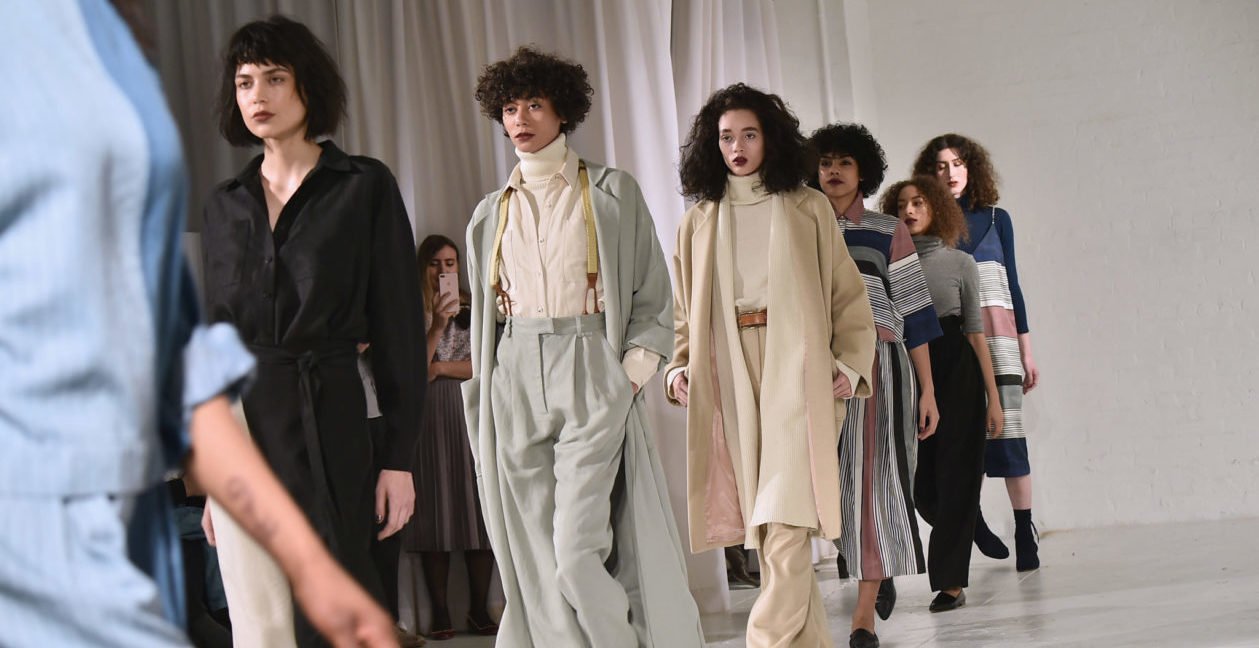So you need a little retail therapy. Time for a new suit, dress or leather jacket? Want to make your fashion a conversation starter?
How about a leather jacket grown from kombucha bacteria? Sneakers from ocean plastic? A silk-like dress made from sour milk?
You could consider a luxury garment that was gently worn, cleaned up and resold at a fraction of the cost. Or you could rent your new outfits and return them when you are bored.
You could even, gasp, shrug on any old thing and go spend your money on a new experience—maybe go to a concert.
Your choice matters because the apparel sector is one of the most polluting industries in the world. The original material often requires massive amounts of chemicals and water to grow or is made through a synthetic chemical process. The garment production process uses enormous amounts of water, chemical dyes and energy. In fact, the industry is responsible for 20 percent of all global water use and 10 percent of global carbon emissions. Your designer pair of jeans required 2,000 gallons of water to make. Then there are all the discarded garments that end up in landfills, exacerbated by the onset of trend-driven “fast fashion,” which makes throw-away garments for 50-plus microseasons a year. Last but not least, the plastic fibers embedded in our garments to help them stretch and keep their shape shed half a million tons of microfibers into our water supply when we wash them.
Still want that new suit?
Lots of interesting people are tackling this problem from different directions. The Queen of Raw (love the name), a new marketplace and platform, is connecting designers and others with unwanted textiles in factories—the group claims there is $120 billion of dead stock sitting in factories right now.

Patagonia has led the development of a Sustainable Apparel Coalition that has developed tools for companies to tackle issues such as reducing the amount of water used in manufacturing. Patagonia will also repair your clothes for you, by the way.
Government is also getting involved. In August 2019, ahead of the G7 summit, French president Emmanuel Macron facilitated a G7 Sustainable Fashion Pact with 32 companies, led by Kering, a large luxury company that includes Gucci and Yves Saint Laurent among its brands. Kering requires its companies to publish environmental profit and loss statements.
Gucci has put forward a 10-year plan on sustainability, collaborating with Livia Firth, who runs the Green Carpet Challenge, a group that aims to increase the profile of sustainable brands. When I was running Rainforest Alliance, supermodel Gisele Bündchen supported the launch of a Rainforest Alliance-certified leather Gucci bag, working with Firth.

After being lambasted for burning unwanted garments, Burberry has been making significant commitments to bringing sustainability to its clothing: 68 percent of the cotton and 49 percent of the leather it uses comes from sustainable sources.
Luxury brands are focusing on sustainability as a way to add quality and purpose to their collections. This is no longer your mother’s shapeless peasant blouse fashioned from a hemp coffee bag. Check out this list of sustainable luxury brands, which includes such high-profile names as Mara Hoffman, Gabriela Hearst and Stella McCartney.
And men, there is a list for you too.
So wear your values to work or to a party and bask in the glow of being stylish, sexy—and sustainable.







